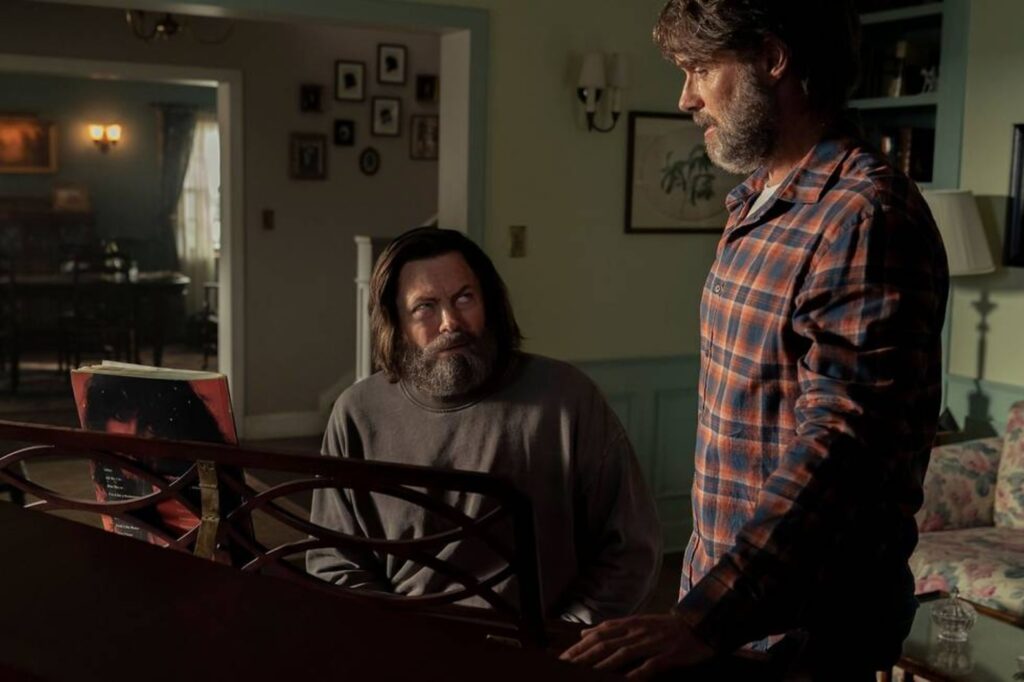[Ed Note: MAJOR spoilers for The Last of Us’ third episode—“Long Long Time”—below.]
I haven’t stopped thinking about Episode 3 of HBO’s The Last of Us since I watched it. Titled after the Linda Ronstadt song of the same name, “Long Long Time,” the installment is a radical departure from the ongoing journey of Joel (Pedro Pascal) and Ellie (Bella Ramsey) as it sidelines the leads for a majority of the runtime. Instead, it introduces and fleshes out the story of Bill (Nick Offerman) and Frank (Murray Bartlett). Bill is a survivalist, living alone in an abandoned town after FEDRA packs and ships out the remaining townsfolk. A few years go by, and Frank wanders into town, falling into one of Bill’s traps. After Bill brings Frank inside for a warm meal and a fresh change of clothes, the two fall in love.
What unfolds throughout the episode is basically The Last of Us’ version of Richard Linklater’s Before trilogy, as Craig Mazin’s script jumps around in time, showing Bill and Frank at different points throughout their shared life together. Helmed by director Peter Hoar, the episode is an extraordinarily moving exploration of the relationship between these two men, anchored by slam-dunk performances from Bartlett and Offerman. The economy of the storytelling is fantastic, giving you just enough to fully invest in their relationship without ever feeling overwritten or overdone. It’s an absolute masterclass in storytelling, full stop.
“We were blessed with a great script that had all the nuances of the relationship and the characters in it. We just needed to follow the breadcrumbs and connect the dots,” Bartlett tells Complex. “One of the beautiful things for me about this experience was being paired with Nick and finding that both of us wanted to just go there. Go to the places that the script asked us to go to, to be vulnerable, and to fill out what the script was asking us to do.”
“It was a great map and a great compass. And our director, Peter Hoar, and Craig were around a lot, coloring things,” Offerman adds. “But it all comes back to the script. If it ain’t on the page, it ain’t on the stage, as it were.”
Complex jumped at the chance to speak with both actors about their performances. What follows is a delightfully fun conversation—complete with a few trademark sardonic remarks from Offerman—about their reactions to the script, how they conveyed empathy, the benefits of a good red wine pairing, and much more.

